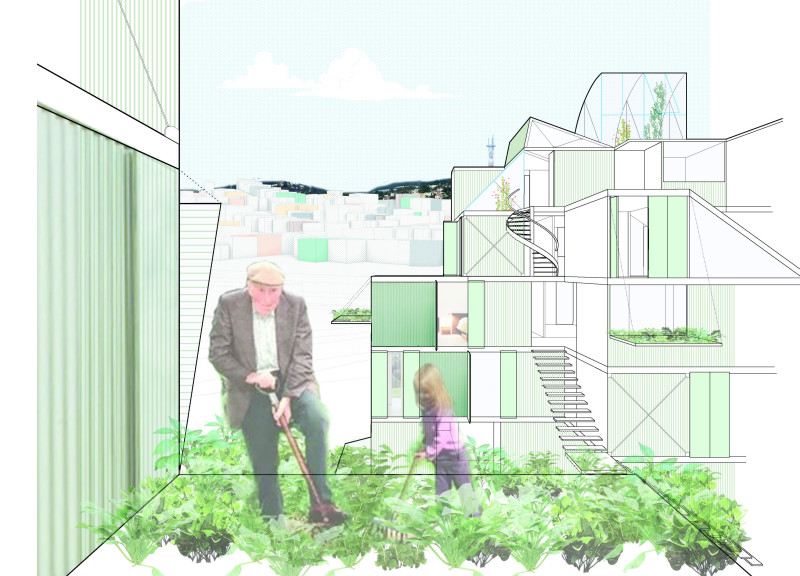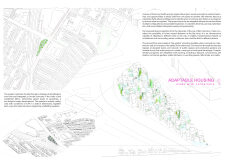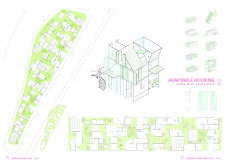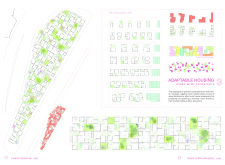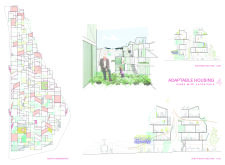5 key facts about this project
Modular Housing Design
The project utilizes repurposed shipping containers, which are inherently durable and economical. Each unit has been designed with flexibility in mind, allowing for various configurations to meet the diverse needs of residents. The layout incorporates individual living spaces arranged around communal areas, encouraging socialization and collaboration among residents. Critical details include integrated garden spaces, shared facilities for cooking and leisure, and green roofs that provide insulation and reduce stormwater runoff. The inclusion of these communal elements reinforces the concept of living in a cohesive community rather than isolated units.
Sustainable and Resilient Features
What distinguishes this housing project from others is its focus on resilience and adaptability. The design incorporates living walls and vertical gardens as part of its ecological landscape strategy. This approach not only enhances the aesthetic value but also contributes to biodiversity and air purification. The modular design allows for expansion or reconfiguration of living spaces based on changing resident needs, ensuring longevity and relevance in an evolving urban context. The use of reclaimed wood for finishes complements the steel structure of the containers while minimizing resource depletion.
Community Integration
The architectural design fosters a strong community identity by prioritizing shared experiences. The ground-level configuration invites residents into open communal spaces, where gardens and seating areas encourage social interaction. This layout integrates nature into daily life, serving both practical and experiential purposes. The overall design illustrates a sustainable approach to urban living, reflecting a balance between individual housing needs and shared community values.
For a more comprehensive understanding of the project, including architectural plans, architectural sections, and various architectural designs, readers are encouraged to explore the detailed project presentation.


